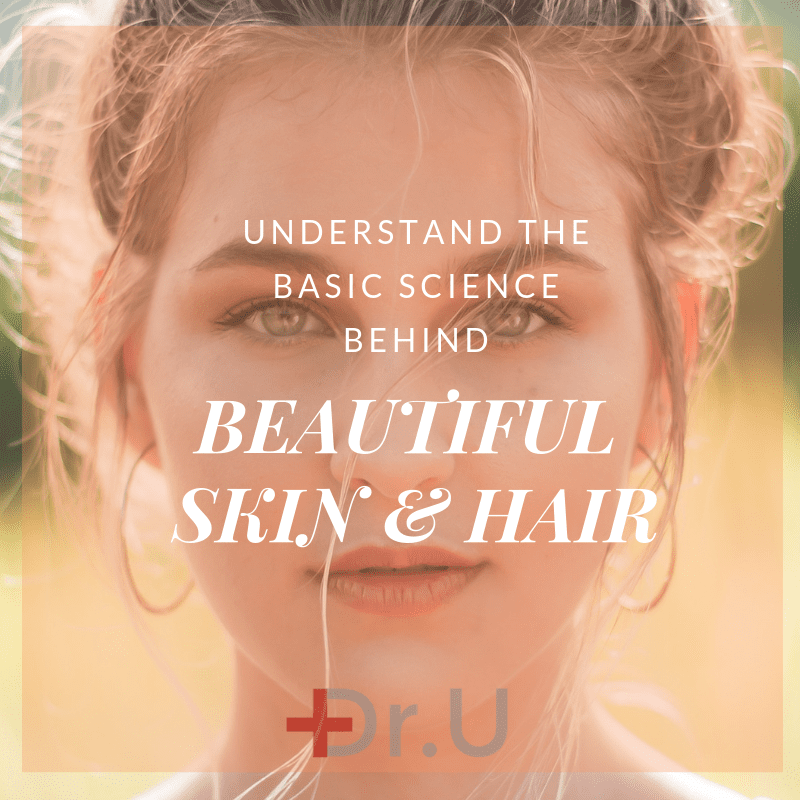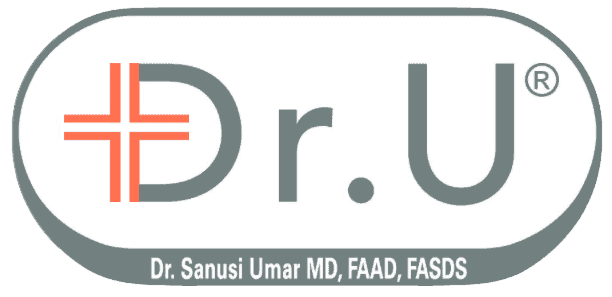Taking your vitamins has always been known to benefit the body’s long-term health, though not a particularly enjoyable habit. In recent years, however, more people have been inspired to take their vitamins on a regular basis thanks to a new generation of beauty supplements in the form of stylishly packaged pills, gummies, gel caps and powders. Vitamins, nutrients and other good-for-you substances are being marketed to aesthetically-minded millenials as glamorous, chic lifestyle consumables which can beautify the hair and skin and also improve overall health and vitality..
Many of these nutricosmetics (e.g. Sugar Bear Hair, Halo Beauty, Ritual, Beauty Works West, Evolution 18) now share the same broad niche as makeup brands, with their availability in stores like Ulta and Sephora.
Although good nutrition now has a luxurious look and feel, can consumers take vitamins for beauty purposes and really expect healthier, shinier hair, glowing skin and better vitality? Let’s take a closer look.
The Truth About About Beauty Supplements

Today’s designer vitamins and related nutricosmetics are artfully packaged labeled with chic, modern fonts. The pills and capsules themselves are often colorful and candy-like in appearance. And with names like Moon Juice Beauty Dust, beauty supplements can also convey a rather magical allure.
However these products don’t offer any new ingredients or innovative formulations. In fact, multi-vitamins and other packaged ingestible nutrients for the skin, hair and even nails have been around for decades.
Most experts would agree that the only special factors about this new wave of stylish beauty supplements are their eye-catching, visual presentation, their taste and their marketing on social media.
Though many of these brands showcase before and after photos provided by their customers. their overall effectiveness is not supported by controlled research studies.
Thus, consumers should first understand the basic functions and roles of vitamins and other health ingredients. For example, vitamins themselves are just coenzymes, helping enzymes in the body process energy and perform their jobs better. They themselves do not repair and restore the hair, skin and nails.
Knowing what nutritional ingredients do makes it possible to maintain realistic expectations for results. Supplements are not miracle pills. They can help fill in your diet’s nutritional gaps. The appealing visual aesthetics and taste can make it easier to stay consistent.
The Scoop On Skin Care Vitamins and Nutrients
Many women strive for more beautiful, youthful looking skin. And this end goal is often cited, at least implicitly by many beauty supplements which are supposed to provide nutritional elements to help the skin look its best.
The Science of Youthful, Healthy-Looking Skin

The question of whether or not skincare vitamins actually work should be approached through a clear general understanding of the science behind younger looking skin.
Protection From UV Damage
Studies on identical twins show that when one sibling lives day to day, regularly exposed to the sun, they will exhibit significantly greater signs of aging, compared to the twin who stays protected from heavy UV exposure.
UV rays create free radical molecules on the skin which cause surrounding cells to age.
Protecting can be achieved through the regular use of sunscreen of at least SPF 30, on a daily basis. Also, it is important to wear protective clothing limit your exposure to the damaging effects of the sun.
Protection From Oxidative Stress Due to Free Radicals
As discussed above, free radicals are a major contributor to premature aging. These unstable molecules are not only formed by UV rays, but other factors, including the food we eat.
Antioxidants provide supplementary electrons which neutralizes free radical molecules and helps curb the chain reaction of oxidative stress. Consuming a regular diet that is rich in antioxidants can help your skin maintain a youthful appearance for years to come.
Maintenance of Skin Firmness and Elasticity
Two proteins in our skin are primarily responsible for its youthful appearance, collagen and elastin. Collagen is what makes the skin firm and smooth. Elastin allows our skin to spring back to its original form.
Both proteins can be damaged by the sun’s UV rays as well as free radicals from food and toxins. Also, they can be undermined by advanced glycation end products which form sugar, coating our collagen and elastin, much like caramel. Limiting one’s sugar intake, consuming anti-oxidant rich foods and sun protection all go a long way towards maintaining the skin’s youthfulness.
Do Collagen Beauty Supplements Help?
Consumers are led to believe that by consuming collagen, they can replenish this protein in their own skin, and thus make it firmer.
However, when you ingest collagen, it gets broken down by the digestive system and turned into amino-acids. Dietary supplements do not directly impact the skin. According to the UC Berkeley School of Public Health, there is not much evidence to support the effectiveness of taking collagen supplements for anti-aging purposes.
Collagen needs to be produced by your skin, not ingested.
Will Hair Vitamins Help You Grow Longer, Sleeker, Shinier Tresses?

It is important to understand the factors which contribute to hair growth, as well as hair loss and thinning before deciding to buy any type of treatment product. This knowledge contributes to a more realistic perception of the role that hair vitamins and supplements can play
Biotin, for example, is known as the hair vitamin, or vitamin H. While there are research studies that support its effectiveness for restoring hair growth, such results are only possible if there is a severe deficiency to begin with. However, cases of major deficiencies are extremely rare.
Nowadays, high amounts of Biotin are included in many brands of hair vitamins as well as beauty supplements formulated for the hair. However, this does mean that they will produce thicker or more prolific forms of hair growth.
Furthermore, consumers should be aware that excessive levels of Biotin can be either unsafe or completely unnecessary since the body will excrete what it is not able to use. While the recommended daily intake has been defined as 30-100 micrograms, some beauty supplement brands may include a lot more.
This includes 8,497 micrograms of Biotin, which is 70% more than what is stated on the label. Labdoor also found “relatively high” amounts of lead in the product.
Such findings, according to Arthur Grollman, a professor and director of Stony Brook University School of Medicine’s Laboratory for Chemical Biology, illustrate the lack of regulation of dietary supplements, although the pharmaceutical industry is held to much stricter government standards.
Additionally, consumers should also be aware that a well-rounded diet, which includes, proteins, minerals as well as a variety of vitamins is important for healthier looking hair.
Actual Factors That Affect Hair Loss and Growth
Certainly there are numerous nutritional products which supposedly promote better looking hair and growth. However, as discussed above, healthy sounding buzz-terms are often used as selling points to attract customers.
Consumers should educate themselves on the factors responsible for hair loss, thinning and hair growth. First and foremost a person’s underlying genetic predisposition is a major determinant. However, environmental factors can also influence the severity and rate of hair loss. Examples include excessive sun exposure, smoking, drinking, and in the case of women, stress related to marital status.
Environmental variables may work separately from genetics. They include side effects from prescription medications, tightly pulling hair styling practices which leads to traction alopecia, bacteria or fungus on the scalp which can trigger inflammation of the hair follicles. Also bodily stress can release neurochemicals, causing hair follicles to enter a temporary hair loss state called telogen effluvium.
Today’s scientists are now finding new forms of evidence for various plant extracts to safely promote healthier hair follicles which can lead to new forms of growth. However, men and women should read about the published findings of actual controlled studies that were performed, rather than making decisions based on any type of labeling claim.
Do You Need A Nutritional or Beauty Supplement For Better Hair and Skin?
Before deciding to add any type of dietary supplement to your daily regimen, be sure to consult with your doctor. He or she can diagnose nutritional deficiencies and inform you if any ingredients could potentially be harmful to your health. A doctor will also let you know if supplements might have an adverse effect when it comes to pregnancy, breastfeeding, surgeries, or blood tests.
Consumers are also encouraged to check with sites like Consumer Lab to see the findings of independent lab tests performed on virtually any nutritional supplement.
A safe beauty supplement of your choice, which is accurately labeled and approved by your doctor can be a positive move to help fill in any nutritional gaps in your diet Just be sure to remain realistic about your overall expectations.
Frequently Asked Questions – Beauty Supplements For the Skin and Hair
1. Does the FDA regulate the labeling and ingredients of beauty vitamins?
According to a study by JAMA Network Open, the FDA does not regulate supplements. There are currently many dietary supplements which include unapproved, undeclared pharmaceutical ingredients. Many supplements also contain filler ingredients which may actually diminish the effectiveness of the active ingredients.
2. If I am interested in taking hair vitamins or skincare vitamins, how would a doctor diagnose any nutritional deficiencies I may have?
Your doctor will discuss your eating habits and the foods you consume on a regular basis. They will also ask you questions about any symptoms you may be experiencing. Through routine blood tests they will be able to determine specific areas of nutritional deficiencies.
3. Is it better to obtain nutrients from natural food sources or supplement products?
It is actually far healthier to consume nutrients from natural food sources versus supplements. The Academy of Nutrition and Dietetics recommends eating nutrient dense foods which contain a wider combination of beneficial components like fiber and bioactive compounds which cannot be found in supplements. Harvard Health notes, “supplements can plug dietary gaps, but nutrients from food are most important.”
Healthline.com points out that synthetic nutrients are not chemically identical to the corresponding compounds found in food. The production processes are not the same as how plants and animals create these chemicals. Your body does not always react or absorb synthetic nutrients as effectively as natural ones.
Further Reading
Discover how this woman achieved the skin of her dreams through a dermatology approach.




